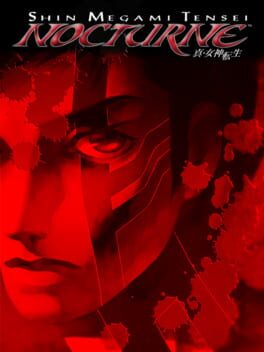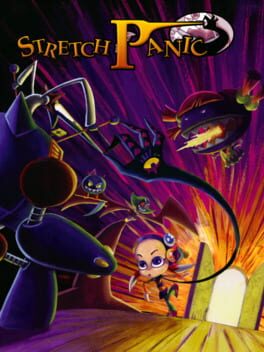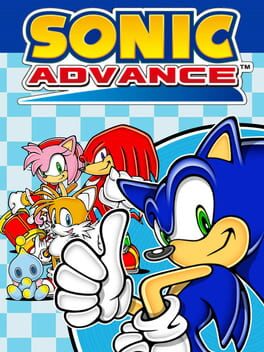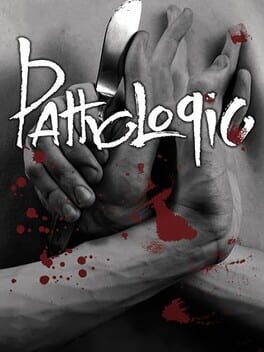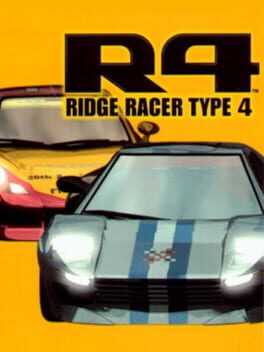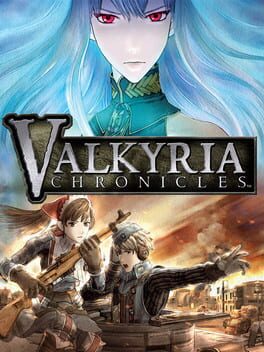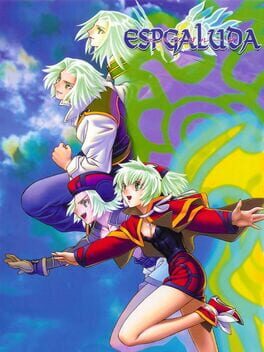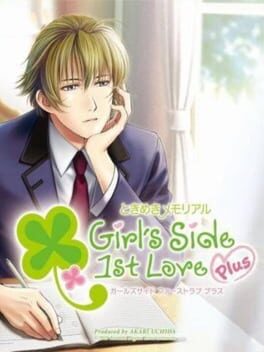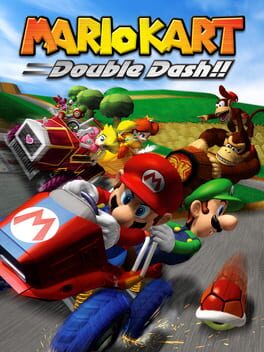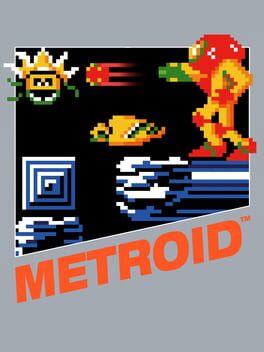oneiromantic
It would take me an unreasonable amount of time to explain all of the reasons I love this game, so I won't even try to do so for the time being. The long and short of it is that I see it as this sort of theoretical maximum amount of purpose you can wring out of modernist game design. The basic concept of the story is clearly informed by the need to Make A Shin Megami Tensei Game, ie it must 1) be conducive to brutally difficult boss fights, 2) be highly allegorical and religious, 3) be exceedingly dark, and 4) contain at least 3 philosophically distinct story routes.
This boxes the game in to some extent, but beyond the basics it sets out the game becomes this genuinely insane story pulling together Mahayana sutras and the book of Job into this profoundly depressing psychological challenge addressing a unique range of topics (themes that jump out to me personally include fascism, sexuality, the need for metanarratives, and powerlessness). Since these ideas were already set up to work within traditional game design, you get some of the most playable JRPG battles I've ever seen and some of the tightest balance between those and the dungeon crawling out there to totally reinforce it the whole way through. The boss fights in particular are a highlight, with each one having some immediately interesting strategy they run on you which you can only get past by keeping your wits about you.
It's a slick game with writing better than most novels I've read, cutscenes more stylish and expressive than many movies I've seen, and design more meticulously balanced than essentially anything else in the medium. On a meta level, it also speaks to the limits of the SMT franchise, the requirements I listed out earlier in this review of being "the next Shin Megami Tensei game". It fundamentally tries to show the player that these can only go so far, even seeming to tacitly encourage them to want to essentially destroy them. However, even in that ending, the game ultimately puts its faith back into it. It's like when I'm playing this game I'm hearing rumblings of something which would finally make me less than embarrassed to admit my love of games, that I might live to see a game which is self-aware enough to deconstruct its own mechanics and build them up into something greater than the sum of its parts. Nocturne stops just barely shy of this; it's an anticipation of a masterpiece that I hope to play someday.
This boxes the game in to some extent, but beyond the basics it sets out the game becomes this genuinely insane story pulling together Mahayana sutras and the book of Job into this profoundly depressing psychological challenge addressing a unique range of topics (themes that jump out to me personally include fascism, sexuality, the need for metanarratives, and powerlessness). Since these ideas were already set up to work within traditional game design, you get some of the most playable JRPG battles I've ever seen and some of the tightest balance between those and the dungeon crawling out there to totally reinforce it the whole way through. The boss fights in particular are a highlight, with each one having some immediately interesting strategy they run on you which you can only get past by keeping your wits about you.
It's a slick game with writing better than most novels I've read, cutscenes more stylish and expressive than many movies I've seen, and design more meticulously balanced than essentially anything else in the medium. On a meta level, it also speaks to the limits of the SMT franchise, the requirements I listed out earlier in this review of being "the next Shin Megami Tensei game". It fundamentally tries to show the player that these can only go so far, even seeming to tacitly encourage them to want to essentially destroy them. However, even in that ending, the game ultimately puts its faith back into it. It's like when I'm playing this game I'm hearing rumblings of something which would finally make me less than embarrassed to admit my love of games, that I might live to see a game which is self-aware enough to deconstruct its own mechanics and build them up into something greater than the sum of its parts. Nocturne stops just barely shy of this; it's an anticipation of a masterpiece that I hope to play someday.
2001
2001
2005
One of the most thought-provoking games ever written. Unfortunately, it actively spites anyone who believes the audience's time ought to be treated as valuable. It's brutal, frustrating, slow, and extremely Eastern European. It's forbidding in a lot of ways, which is almost enough to be interesting in and of itself, but it's lacking just that extra little bit of substance to make me want to actually recommend it. It plays into that tediousness to some extent, but the things it's prodding you into doing also feel obscured by a lack of polish which is also stacked on top of the intentionally upsetting parts of the experience.
Maybe just watch a video essay about the game instead or something; I've heard Pathologic 2 is more of an actual video game but I haven't gotten around to that yet. Point is, I score this highly because I think I enjoy having experienced this game, but I don't recommend it because it's not entirely worth the trouble that actually playing it entails.
Maybe just watch a video essay about the game instead or something; I've heard Pathologic 2 is more of an actual video game but I haven't gotten around to that yet. Point is, I score this highly because I think I enjoy having experienced this game, but I don't recommend it because it's not entirely worth the trouble that actually playing it entails.
1995
2016
1998
When I was little, I played an inordinate amount of Car Simulators which we could charitably refer to as “games”. These days I could drive a real car if I wanted to (I typically don’t), so the genre’s lost most of its luster.
R4, however, now THAT’S something I can call a racing game. The notion of automobile racing isn’t much more than a pretext for its kinesthetic virtuosity. You tap the brakes while turning and instantly turn 90 degrees while nearly maintaining your speed. You bump into an opponent in the final stretch and both of your cars fly away from each other like a child throwing a hot wheels across their bedroom. Every other car in the race jets out ahead of you at Mach 2 at the start only to slow down to a light jog, speeding back up to the same clip as you when you get close.
It’s giddily surreal; you’re not playing as someone driving a car, but someone daydreaming about doing so. It’s easier to say you like that sort of game than it is to even comprehend how to make one. Behind the scenes at Namco, some probably-underpaid systems designers painstakingly tweaked to perfection every little variable controlling the accelerations which make up that Sweet, Sweet Friction. That is to say, at least by 1999 videogames had come absolutely fucking nowhere since Pac-Man.
Of course, this would all feel sort of sterile if not for its similarly remarkable presentation. It’s got the most delightful UI I’ve seen in any game not named “Persona 5”, a soundtrack so legendary even JPEGMAFIA has sampled it, and its low-poly style oozes with charm to this day. Even the writing is pleasantly surprising, being at least as enjoyable as a sports movie you’d put on in the background while doing something else. Your coach goes through one of a few slightly different character arcs depending on how well you do in each of the campaign races, and there’s enough dialogue written that this always provides a cohesive storyline more or less unique to your performance (in my experience, anyways).
I understand why someone might be looking at these reviews skeptical of the unanimous praise heaped on this game, but my god dude it really is just that good.
R4, however, now THAT’S something I can call a racing game. The notion of automobile racing isn’t much more than a pretext for its kinesthetic virtuosity. You tap the brakes while turning and instantly turn 90 degrees while nearly maintaining your speed. You bump into an opponent in the final stretch and both of your cars fly away from each other like a child throwing a hot wheels across their bedroom. Every other car in the race jets out ahead of you at Mach 2 at the start only to slow down to a light jog, speeding back up to the same clip as you when you get close.
It’s giddily surreal; you’re not playing as someone driving a car, but someone daydreaming about doing so. It’s easier to say you like that sort of game than it is to even comprehend how to make one. Behind the scenes at Namco, some probably-underpaid systems designers painstakingly tweaked to perfection every little variable controlling the accelerations which make up that Sweet, Sweet Friction. That is to say, at least by 1999 videogames had come absolutely fucking nowhere since Pac-Man.
Of course, this would all feel sort of sterile if not for its similarly remarkable presentation. It’s got the most delightful UI I’ve seen in any game not named “Persona 5”, a soundtrack so legendary even JPEGMAFIA has sampled it, and its low-poly style oozes with charm to this day. Even the writing is pleasantly surprising, being at least as enjoyable as a sports movie you’d put on in the background while doing something else. Your coach goes through one of a few slightly different character arcs depending on how well you do in each of the campaign races, and there’s enough dialogue written that this always provides a cohesive storyline more or less unique to your performance (in my experience, anyways).
I understand why someone might be looking at these reviews skeptical of the unanimous praise heaped on this game, but my god dude it really is just that good.
2005
Genuinely astonishing how much more tonally distant this game is compared to its predecessor. I really feel unwelcome while playing the whole thing, even the quote-unquote "improved" design over the original makes it feel that much more Mechanical. The whole thing's a wild spectacle of pointing out all of the ways in which Katamari Damacy speaks for itself and that any proper sequel would just disrupt its creative integrity. I can't think of a single other video game that qualifies as much as a middle finger pointed towards its publisher as this is directed towards Namco. A one-of-a-kind, fourth wall-breaking oddity. Godspeed, Keita Takahashi.
2008
Every other cutscene in this game made me feel like I was losing my goddamn mind. Consider that there's a reason there aren't many Japanese games about WWII. Additionally, consider why anime tropes might feel out of place in a story which more or less presents itself as the greatest hits of WWII. You may be starting to get the picture as to how certain minute aspects of the game start to overshadow the parts we're obviously supposed to be focusing on.
That being said, with the right mindset this game is genuinely fascinating because it’s incredibly well-executed for what it is. The game as a whole frames itself as a depiction of a book written about your SRPG squad, which not only sets up the methodical and highly controlled representation of the battles, but also an enormous number of cutscenes and extraneous text. While it’s not exactly half-and-half or anything, there’s a ton of the game which does nothing but tell you about the game’s chronology and world, and it’s just begging to be picked apart and held up to the real-world events they’re trying to invoke.
Also! I feel a need to say that this is an extremely playable game on its own, its class matchups are intuitive once you get the hang of it, the progression systems are engaging and robust, the battles themselves are delightfully positional, it’s great. Really my only complaint is that the game expects some form of grinding from the player at some points, which I think we can all agree only happens when the developers are told that the game needs to be longer for some arbitrary reason.
If that seems like an exceedingly surface-level review of all of the game mechanics, that’s because it is. It’s not what really drove me to irrevocably sink 60 hours of my finite life (which admittedly isn’t that much in terms of RPGs but existentially terrifies me anyways) into getting through all of its content. Like, the systems are cool, I like how they make this whole new spin on SRPG mechanics as a whole by making the world’s most complex menu in the form of an intuitive third-person shooter. But truth be told, I kept playing the game because after each mission, it would unlock a block of text for me tucked away in a glossary which would tell me about some insane social darwinist shit and make that a central aspect of the lore. There’s nothing else like it.
That being said, with the right mindset this game is genuinely fascinating because it’s incredibly well-executed for what it is. The game as a whole frames itself as a depiction of a book written about your SRPG squad, which not only sets up the methodical and highly controlled representation of the battles, but also an enormous number of cutscenes and extraneous text. While it’s not exactly half-and-half or anything, there’s a ton of the game which does nothing but tell you about the game’s chronology and world, and it’s just begging to be picked apart and held up to the real-world events they’re trying to invoke.
Also! I feel a need to say that this is an extremely playable game on its own, its class matchups are intuitive once you get the hang of it, the progression systems are engaging and robust, the battles themselves are delightfully positional, it’s great. Really my only complaint is that the game expects some form of grinding from the player at some points, which I think we can all agree only happens when the developers are told that the game needs to be longer for some arbitrary reason.
If that seems like an exceedingly surface-level review of all of the game mechanics, that’s because it is. It’s not what really drove me to irrevocably sink 60 hours of my finite life (which admittedly isn’t that much in terms of RPGs but existentially terrifies me anyways) into getting through all of its content. Like, the systems are cool, I like how they make this whole new spin on SRPG mechanics as a whole by making the world’s most complex menu in the form of an intuitive third-person shooter. But truth be told, I kept playing the game because after each mission, it would unlock a block of text for me tucked away in a glossary which would tell me about some insane social darwinist shit and make that a central aspect of the lore. There’s nothing else like it.
2020
Omori is a great game when it feels like being one. It wants to talk about escapism by setting up something pleasant and subverting it, right? Fine. Then it goes back to the pleasant thing, and it's like, okay sure what it showed us was super vague and is just meant to set up things that will pop up now and then, got it. You get through a couple hours of that and then you get an extensive, deeply moving "main story" section. It has a scripted loss with the best use of music I've ever seen in a video game. Then you go back to the tonally unchanged escapist portion of the game.
It does this repeatedly over the course of the game, and it's clearly because the main story portions of it are deliberately not very fun. The problem is, they’re not very fun to great effect! They’re nonviolent and dull and lacking in a very realistic and relatable manner. They work wonders from a storytelling perspective, I can’t think of another game that actually executes on this sort of thing nearly as well. Why are you insisting on making such a vast majority of the game being centered around the dumbed-down JRPG combat and a plot which the player will be totally disillusioned with from their first taste of the other storyline onwards?
At that, why exactly is the combat like that in the first place? They bundle together status effects, buffs and debuffs, and type matchups into a single system, such that you get this RPS thing where only rock and scissors are relevant because paper only affects your speed, crit chance, and accuracy. This does nothing but remove depth from the basic format of JRPGs, which works for the main storyline for various reasons but the fact that it’s seen as something I’ll enjoy engaging with for the bulk of the game just baffles me. Maybe it being really unengaging is actually some kind of subtle storytelling in that the main character himself doesn’t really understand this sort of thing, but I’d have no idea what to make of that in the context of the rest of the story so that’s almost certainly giving way too much credit to the developers there.
I don’t know if these criticisms are meaningful at all to people who haven’t played the game in the first place, but I feel so deeply frustrated at this game for how much it seems to want to bury its great moments. Omori is a genuinely moving game (an appallingly rare thing) but repeatedly grinds everything to a halt just so that it can be sure that people who bought the game wanting a Fun JRPG Experience can get something that nominally looks like that, for some reason. I genuinely adore the writing, I adore the structure and execution of the real-world portions, I like the parts where the dream-world’s veneer breaks down (which is all too rare until the game’s almost over), there’s a five-star game buried in here somewhere. Unfortunately, roughly half of the game is just dirt.
It does this repeatedly over the course of the game, and it's clearly because the main story portions of it are deliberately not very fun. The problem is, they’re not very fun to great effect! They’re nonviolent and dull and lacking in a very realistic and relatable manner. They work wonders from a storytelling perspective, I can’t think of another game that actually executes on this sort of thing nearly as well. Why are you insisting on making such a vast majority of the game being centered around the dumbed-down JRPG combat and a plot which the player will be totally disillusioned with from their first taste of the other storyline onwards?
At that, why exactly is the combat like that in the first place? They bundle together status effects, buffs and debuffs, and type matchups into a single system, such that you get this RPS thing where only rock and scissors are relevant because paper only affects your speed, crit chance, and accuracy. This does nothing but remove depth from the basic format of JRPGs, which works for the main storyline for various reasons but the fact that it’s seen as something I’ll enjoy engaging with for the bulk of the game just baffles me. Maybe it being really unengaging is actually some kind of subtle storytelling in that the main character himself doesn’t really understand this sort of thing, but I’d have no idea what to make of that in the context of the rest of the story so that’s almost certainly giving way too much credit to the developers there.
I don’t know if these criticisms are meaningful at all to people who haven’t played the game in the first place, but I feel so deeply frustrated at this game for how much it seems to want to bury its great moments. Omori is a genuinely moving game (an appallingly rare thing) but repeatedly grinds everything to a halt just so that it can be sure that people who bought the game wanting a Fun JRPG Experience can get something that nominally looks like that, for some reason. I genuinely adore the writing, I adore the structure and execution of the real-world portions, I like the parts where the dream-world’s veneer breaks down (which is all too rare until the game’s almost over), there’s a five-star game buried in here somewhere. Unfortunately, roughly half of the game is just dirt.
2003
2015
It's essentially impossible to remove Undertale from the discourse surrounding the game and how that's changed over the years, so forming a coherent opinion about it and explaining that opinion in a reasonable word count is essentially impossible. However, at the risk of sounding like an unreasonable idiot, I've gotta say, Undertale is pretty alright.
I like the basic ideas for its systems to chat with enemies, but that it falls pretty flat in implementing them. You essentially just pick one thing to say/do to any given enemy type and survive the following bullet hell section. It just doesn't really feel like conversation so much as the surrounding menu text is telling me that I'm definitely talking to these creatures. Furthermore, the game is almost absurdly binary in its morality. Killing one enemy immediately puts you onto the neutral route, for which numerous characters will talk about the people you've killed in the plural. This is powerful in its own right, but when it comes to making any sort of statement about violence in and of itself I feel like some form of nuance across the neutral ending (ie, having multiple "neutral" routes) is sorely missed.
All of that being said, Toby Fox sure knows how to pace some bullet hell sections. Especially with the boss fights you get this really nice window into the internal lives of these characters as expressed by how they fight. Even though they're mostly abstract they really do hit pretty hard (emotionally, I mean), the Mettaton fight in particular standing out in my memory as being a very richly felt section of the game. The writing can occasionally be very of its time in a bad way--actually, fuck my tonal consistency; sometimes the dialogue is just kinda cringe--but the overarching narrative is satisfying and while the more meta stuff got shamelessly ripped off by numerous bad games in its wake, Undertale itself remains remarkably restrained in its use of the trope. Also, doing that Asgore fight during the pacifist run? Man, it's raw.
Sorry if I'm being a little unfocused: like I said, it's a bit of a Discourse-y game and some things become a bit obligatory to address. My bottom line is that the game comes across as a bit gimmicky, but when you can get past that it begins to show touches of subtlety that I can really respect more and more as time goes on. That said, the game in general is bogged down at least a little bit by the rest.
I like the basic ideas for its systems to chat with enemies, but that it falls pretty flat in implementing them. You essentially just pick one thing to say/do to any given enemy type and survive the following bullet hell section. It just doesn't really feel like conversation so much as the surrounding menu text is telling me that I'm definitely talking to these creatures. Furthermore, the game is almost absurdly binary in its morality. Killing one enemy immediately puts you onto the neutral route, for which numerous characters will talk about the people you've killed in the plural. This is powerful in its own right, but when it comes to making any sort of statement about violence in and of itself I feel like some form of nuance across the neutral ending (ie, having multiple "neutral" routes) is sorely missed.
All of that being said, Toby Fox sure knows how to pace some bullet hell sections. Especially with the boss fights you get this really nice window into the internal lives of these characters as expressed by how they fight. Even though they're mostly abstract they really do hit pretty hard (emotionally, I mean), the Mettaton fight in particular standing out in my memory as being a very richly felt section of the game. The writing can occasionally be very of its time in a bad way--actually, fuck my tonal consistency; sometimes the dialogue is just kinda cringe--but the overarching narrative is satisfying and while the more meta stuff got shamelessly ripped off by numerous bad games in its wake, Undertale itself remains remarkably restrained in its use of the trope. Also, doing that Asgore fight during the pacifist run? Man, it's raw.
Sorry if I'm being a little unfocused: like I said, it's a bit of a Discourse-y game and some things become a bit obligatory to address. My bottom line is that the game comes across as a bit gimmicky, but when you can get past that it begins to show touches of subtlety that I can really respect more and more as time goes on. That said, the game in general is bogged down at least a little bit by the rest.
I first became aware of the depth the Tokimeki Memorial games are known for through the Tim Rogers video essay on the first game in the franchise. However, since my Japanese knowledge is nothing to write home about, I’m only capable of playing the DS releases of the Girl’s Side spinoffs, since at the time of writing those are the only ones with English patches available (barring a translation of the SNES port of the original, ie the worst version). That’s just fine; I like men and have been known to admire many 2D ones in my time.
But you know what? Even going into the experience expecting something much closer to an RPG than a VN, I was ill-prepared for the socially anxious labyrinth of a videogame that is Tokimeki Memorial: Girl’s Side Plus. It has this solid foundation of your daily actions building up or ticking down various stats based on RNG as well as more long-term decisions like where you work part-time or what club you join at school. The real meat of the game lies in what’s laid on top of these, though.
In addition to actually romancing the anime boys themselves, you can also befriend them to varying degrees in addition to 4 girls that you can hang out with at any time without prior planning (and apparently if you get close enough you can get a quasi-lesbian ending). You can also get a random chance of taking any of these characters to a cafe after school to have a casual conversation with them (that I think also helps out their feelings for you?) or to walk home with you (which offers no information about them but definitely makes them like you more), before which you can call out to them by one of 10 nickname and honorific combinations. Also if you’re close but not close enough with a guy and have befriended a girl well enough she might start to go after him herself and you have to either start being mean to her and chase after the guy desperately or give up on that guy ever dating you again.
There’s also an entire metagame where you can go out to buy clothes on days where you could otherwise be calling someone or going on a date, and you can improve your dates themselves by wearing outfits that are in fashion or give off a certain vibe that each of the boys will react differently to, but it has to be suitable for the time of year or else they’ll give you a funny look.
You probably get the idea by now: the game is just chock full of interlocking systems like these, it’s mind-blowing. Even though you’re only presented with a small number of options at any given time, the depth in considering what your optimal move is remains enthralling for the entire run of the game.
Its design is brilliantly mathy and some SMT-level nonsense clearly went into its balance. In the final month of the game I got totally checkmated where my best friend suddenly became a rival with my for Sakuya Morimura, my favorite of the crowd. I was on track to get at the end if I could avoid offending any of the other boys too badly. The event where she was scripted to take him from me was set for a date too close to any of my saves for me to be able to take him on enough dates to prevent it by making him like me enough. My avatar narrated to herself: “Well, Arisawa-san finally told Morimura-kun about her feelings.” I rolled back my save to play the final 2 months of the game repeatedly, the protagonist always gratingly happy for her dear friend Shiho Arisawa.
Ultimately, she got into a first-rate university and graduated without being too close to anyone romantically OR platonically. Story of my fuckin’ life! Jorge Luis Borges could never.
But you know what? Even going into the experience expecting something much closer to an RPG than a VN, I was ill-prepared for the socially anxious labyrinth of a videogame that is Tokimeki Memorial: Girl’s Side Plus. It has this solid foundation of your daily actions building up or ticking down various stats based on RNG as well as more long-term decisions like where you work part-time or what club you join at school. The real meat of the game lies in what’s laid on top of these, though.
In addition to actually romancing the anime boys themselves, you can also befriend them to varying degrees in addition to 4 girls that you can hang out with at any time without prior planning (and apparently if you get close enough you can get a quasi-lesbian ending). You can also get a random chance of taking any of these characters to a cafe after school to have a casual conversation with them (that I think also helps out their feelings for you?) or to walk home with you (which offers no information about them but definitely makes them like you more), before which you can call out to them by one of 10 nickname and honorific combinations. Also if you’re close but not close enough with a guy and have befriended a girl well enough she might start to go after him herself and you have to either start being mean to her and chase after the guy desperately or give up on that guy ever dating you again.
There’s also an entire metagame where you can go out to buy clothes on days where you could otherwise be calling someone or going on a date, and you can improve your dates themselves by wearing outfits that are in fashion or give off a certain vibe that each of the boys will react differently to, but it has to be suitable for the time of year or else they’ll give you a funny look.
You probably get the idea by now: the game is just chock full of interlocking systems like these, it’s mind-blowing. Even though you’re only presented with a small number of options at any given time, the depth in considering what your optimal move is remains enthralling for the entire run of the game.
Its design is brilliantly mathy and some SMT-level nonsense clearly went into its balance. In the final month of the game I got totally checkmated where my best friend suddenly became a rival with my for Sakuya Morimura, my favorite of the crowd. I was on track to get at the end if I could avoid offending any of the other boys too badly. The event where she was scripted to take him from me was set for a date too close to any of my saves for me to be able to take him on enough dates to prevent it by making him like me enough. My avatar narrated to herself: “Well, Arisawa-san finally told Morimura-kun about her feelings.” I rolled back my save to play the final 2 months of the game repeatedly, the protagonist always gratingly happy for her dear friend Shiho Arisawa.
Ultimately, she got into a first-rate university and graduated without being too close to anyone romantically OR platonically. Story of my fuckin’ life! Jorge Luis Borges could never.
1986
